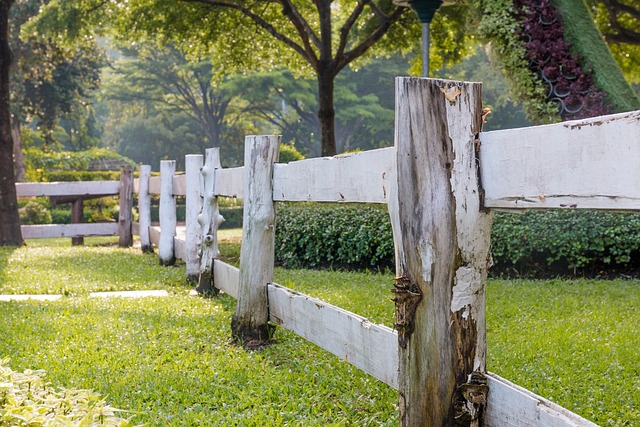In New Bedford, Massachusetts, enhancing your property with a robust fence is both an investment and a way to define your outdoor space. This article guides homeowners through the comprehensive process of fence installation, from understanding local needs and regulations to selecting ideal materials for their properties. We explore various fence types, delve into the step-by-step installation process, offer material selection advice, and provide essential tips for maintaining longevity, ensuring a beautiful and secure outdoor environment.
- Understanding Fence Installation Needs in New Bedford
- Types of Fences for Your Property in Massachusetts
- The Process: From Planning to Completion
- Choosing the Right Fencing Materials
- Local Regulations and Permits for Fence Installation
- Tips for Maintaining Your New Fence
Understanding Fence Installation Needs in New Bedford
When considering fence installation in New Bedford, Massachusetts, understanding your specific needs is essential. Factors like property size, desired material (wood, vinyl, chain link), and aesthetic preferences play a significant role. Additionally, local regulations and zoning laws may impact the type and placement of fences, so it’s crucial to research these before beginning your project.
Your fence should not only enhance the visual appeal of your property but also serve its intended purpose—whether that’s security, privacy, or defining property lines. Engaging with reputable New Bedford fence installation services that can assess your unique requirements and offer tailored solutions is key to achieving a successful outcome.
Types of Fences for Your Property in Massachusetts
When considering fence installation in New Bedford, Massachusetts, homeowners have a variety of options to choose from, each offering distinct benefits and aesthetic appeal. The most common types include wood fences, known for their natural beauty and versatility, perfect for both traditional and modern properties. Vinyl fences are another popular choice, renowned for their durability, low maintenance, and wide range of colors and styles.
For a more secure option, chain-link fences provide robust privacy and security, making them ideal for homes with children or pets. If you’re looking to enhance your outdoor space with a touch of elegance, iron or steel fences offer intricate designs and can be customized to suit any style. Each type of fence has its unique characteristics, so it’s essential to consider factors like durability, maintenance requirements, and the desired level of privacy when making your selection.
The Process: From Planning to Completion
When you engage fence installation services in New Bedford, Massachusetts, the process begins with a consultation to understand your needs and preferences. This includes assessing the property, discussing material options, and planning the design and layout of the fence. The team will provide expert advice on the best type of fence for your space, considering factors like privacy, security, aesthetics, and budget. Once agreed upon, they’ll proceed with preparation, including clearing the site and installing any necessary posts and footings.
As the project advances, the skilled technicians will erect the fence, ensuring precision and quality at every stage. This involves carefully measuring and cutting materials to fit seamlessly around corners and obstacles. After assembly, they’ll secure the fence properly, making sure it’s sturdy and safe. Finally, a thorough inspection is conducted to ensure everything meets your expectations and local safety standards before finalizing the installation.
Choosing the Right Fencing Materials
When considering fence installation, selecting the appropriate materials is a significant decision. The right fencing material not only enhances the aesthetics of your property but also serves its intended purpose—whether it’s providing privacy, security, or defining boundaries. In New Bedford, Massachusetts, where diverse climates and outdoor conditions exist, choosing durable and suitable materials becomes even more critical.
Wooden fences, for instance, offer a classic appeal and can be an excellent choice for those seeking a natural look. However, they require regular maintenance to protect against rot, pests, and harsh weather changes typical of Massachusetts. Alternately, vinyl fencing is low-maintenance and resistant to rotting, fading, or warping, making it a popular option for homeowners. Steel or iron fences provide exceptional strength and security but may be more expensive and demand professional installation.
Local Regulations and Permits for Fence Installation
When considering fence installation in New Bedford, Massachusetts, it’s crucial to be aware of local regulations and permits. Each municipality has its own set of rules governing property alterations, including fence construction. These regulations are designed to maintain neighborhood aesthetics, safety, and privacy standards. Before beginning any installation work, homeowners should consult with the local building department to understand specific requirements, such as height restrictions, material guidelines, and set-back distances from property lines or public spaces.
Obtaining the necessary permits is an essential step in ensuring your fence installation complies with local laws. Permits usually involve submitting detailed plans of the proposed fence, including dimensions, materials, and location. This process allows building inspectors to verify that the fence design meets safety and structural criteria. Failure to obtain proper permits can result in project delays, fines, or even requirement to tear out and redo the installation work.
Tips for Maintaining Your New Fence
After installing your new fence in New Bedford, Massachusetts, proper maintenance is key to ensuring its longevity and preserving its aesthetics. Regular cleaning is essential; brush away any debris or leaves to prevent buildup that could stain or damage the fence material. Depending on the type of fencing, seasonal care may vary—wooden fences might need sealing during humid months to avoid rot, while vinyl or metal fences require minimal upkeep beyond occasional washing.
Inspect your fence regularly for any signs of wear and tear, such as loose posts, broken rails, or damaged pickets. Promptly repairing these issues will prevent further damage and maintain the structural integrity of your fence. Keep an eye out for pests like termites or wood-boring beetles that can infiltrate wooden fences, and consider professional treatments if necessary to protect your investment.
